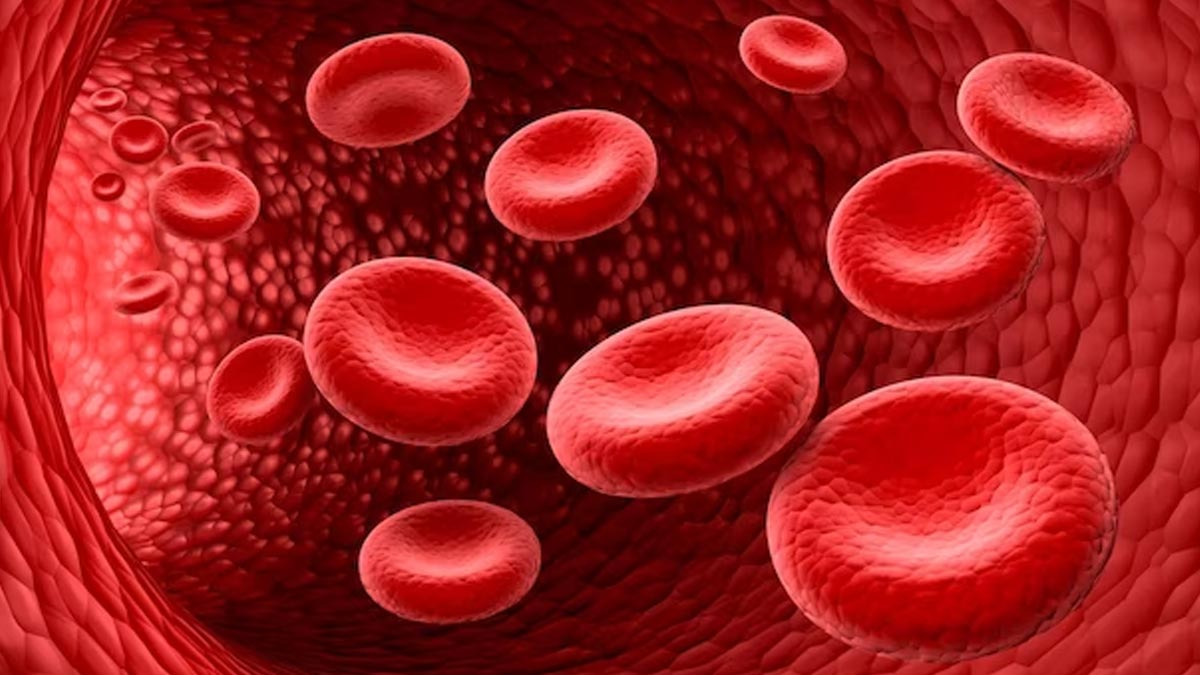
Thalassemia is a hereditary blood disorder characterised by the production of abnormal haemoglobin, leading to an inadequate amount of healthy red blood cells. It is typically passed down through genes inherited from parents. To learn more about the possibility of thalassemia in women after the age of 30., we spoke to Dr Sowmya Raghavan, Obstetrician and Gynaecologist, Apollo Cradle and Children’s Hospital, Chennai.
Table of Content:-
The Influence of Age on Thalassemia Risk
According to Dr Raghavan, "While thalassemia affects both males and females, there has been a growing concern among women who are planning to conceive after the age of 30."
"The risk of having a child with thalassemia is determined by the genes of both parents, rather than the age of the mother," said Dr Raghavan. She added that thalassemia is an autosomal recessive disorder, meaning both parents must carry the mutated gene for their child to be affected. "Therefore, it is essential for women to undergo genetic screening before conceiving, regardless of their age," the doctor suggested.
Also Read: Thalassemia In Pregnancy: Expert Explains How to Manage The Condition
Genetic Testing and Counselling

"Genetic testing is a valuable tool that allows individuals to determine if they carry thalassemia genes," said Dr Raghavan. "It involves analysing a blood sample to identify specific mutations associated with the disorder. Genetic counselling is often recommended for couples planning to have a child, especially if either partner has a family history of thalassemia or belongs to an ethnic group with a higher prevalence of the disease," she explained.
The Role of Preimplantation Genetic Diagnosis (PGD)
Dr Raghavan said, "For women above 30 who are concerned about the risk of thalassemia, one important option is Preimplantation Genetic Diagnosis (PGD)," She added that this advanced reproductive technology involves the screening of embryos created through In Vitro Fertilisation (IVF) for thalassemia gene mutations. "Only embryos free from the disorder are then transferred to the woman's uterus, increasing the chances of a healthy pregnancy," she added.
Importance of Prenatal Testing

Prenatal testing is crucial for detecting thalassemia in the developing foetus. "While testing methods may vary, they often involve sampling the placental tissue to analyse the genetic composition of the unborn child," she said.
She added that prenatal diagnosis can provide valuable information for parents, allowing them to make informed decisions about the pregnancy and prepare for the potential challenges associated with thalassemia.
Also Read: Diagnosed With Thalassemia At The Age Of 3 Months, Here's The Story Of Survivor Anubha
Management and Treatment Options
If a child is diagnosed with thalassemia, regardless of the mother's age, early intervention and ongoing management are key. "Treatment options for thalassemia may include regular blood transfusions, iron chelation therapy to manage iron overload, and, in severe cases, bone marrow transplantation. These interventions aim to reduce symptoms, improve quality of life, and promote healthy development in affected individuals," explained the doctor.
Support and Education

Receiving a thalassemia diagnosis can be overwhelming for families. She said, "It is essential for affected individuals and their parents to seek support and education from healthcare professionals, thalassemia advocacy groups, and specialised centres." She added that these resources can provide guidance, emotional support, and up-to-date information on the latest treatment options and research advancements.
Conclusion
While age does not directly influence the risk of thalassemia in women, it is crucial for all the individuals, regardless of age, to undergo genetic testing and counselling before planning a pregnancy. Thalassemia is a genetic disorder that can be effectively managed with proper prenatal testing, early intervention, and ongoing care.
Seeking support from healthcare professionals and thalassemia advocacy groups is crucial for affected individuals and their families. By staying informed and proactive, women can make informed decisions about family planning and ensure the well-being of their future children.
[Disclaimer: The information in this article is provided by a registered medical practitioner. However, we recommend you consult your healthcare provider for a thorough diagnosis and treatment.]
Also watch this video
How we keep this article up to date:
We work with experts and keep a close eye on the latest in health and wellness. Whenever there is a new research or helpful information, we update our articles with accurate and useful advice.
Current Version